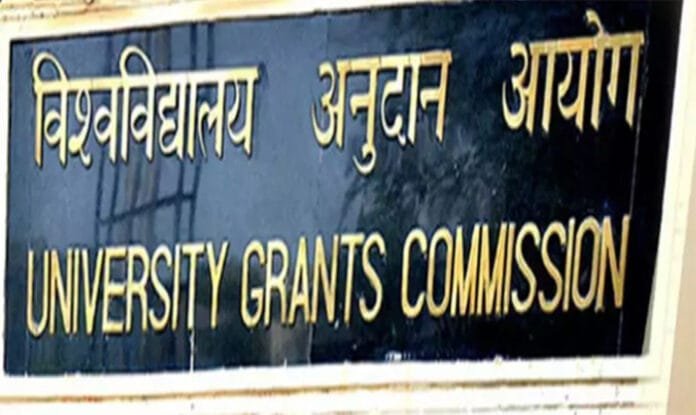UGC Imposes Five-Year Ban on Three Universities for PhD Programmes: What You Need to Know
The University Grants Commission (UGC) has imposed a ban on three universities in Rajasthan, preventing them from starting any new PhD programs for the next five years. This decision was made after the UGC found these institutions to be in violation of its PhD regulations, leading to concerns about the integrity of the degrees offered. The universities affected by this restriction include OPJS University, Sunrise University, and Singhania University.
The Reasons Behind the UGC Ban
The decision to impose such a stringent penalty came after a comprehensive review conducted by the UGC’s permanent committee. According to the findings, these universities failed to adhere to the UGC PhD regulations, particularly the academic standards required to offer PhD degrees. As per UGC Secretary Manish Joshi, the universities were found to have compromised the integrity of their doctoral programs.
Joshi emphasized that these universities did not meet the necessary academic criteria, which are essential to maintaining the quality of higher education in India. He specifically pointed out that the institutions violated the provisions laid out in the PhD regulations for granting PhD degrees. This breach, according to the UGC, was substantial enough to warrant a complete ban on their ability to admit new PhD students for the next five years.
Impact on Potential PhD Candidates
For prospective students considering PhD programs, this development has significant implications. The UGC has strongly advised individuals and their families not to pursue doctoral studies at these universities, as their degrees will not be recognized for purposes of higher education or employment. With the integrity of these degrees under scrutiny, the UGC’s warning has cast a shadow over the credibility of the academic programs offered by these institutions.
This ban is not only a blow to the universities in question but also to the future of students hoping to pursue a PhD from these institutions. As the UGC has made clear, any degrees granted during this period will lack the necessary academic rigor to be considered valid within the broader framework of higher education in India or abroad.
The Role of UGC in Ensuring Academic Standards
The UGC, as the regulatory body for higher education in India, plays a critical role in ensuring that universities and educational institutions comply with the academic standards set forth in its regulations. These standards are designed to maintain the integrity and quality of higher education in India, ensuring that students receive a world-class education that is globally recognized.
UGC Chairman M. Jagdeesh Kumar reinforced this commitment by stating that universities must uphold the highest standards when it comes to their PhD programs. The UGC is taking a firm stance against those institutions that fail to meet these standards. In his statement, Kumar emphasized the importance of adhering to the UGC’s PhD regulations and declared that appropriate actions would be taken against institutions found guilty of violating these rules.
Moreover, the UGC is not stopping at just these three universities. The commission has already initiated a process of reviewing PhD programs at other universities across the country. Institutions that fail to comply with the regulations may face similar consequences, including the possibility of having their PhD programs suspended or terminated. This proactive approach by the UGC is aimed at ensuring that the quality of PhD education in India is not compromised.
Future of PhD Education in India: Ensuring Quality and Integrity
The imposition of the ban serves as a wake-up call to universities across India. It underscores the UGC’s commitment to maintaining the integrity of academic degrees and ensuring that institutions offering doctoral education meet the required academic standards. This action also reflects the growing demand for transparency and accountability in higher education institutions, as India continues to position itself as a global player in education.
Moving forward, it is essential for universities to align their PhD programs with the latest academic criteria and ensure that they provide a rigorous and credible academic experience. This will not only improve the quality of education but also enhance the international reputation of Indian universities. Institutions that prioritize academic integrity, invest in high-quality research, and adhere to the regulations set by the UGC will be better positioned to offer PhD programs that are respected and recognized worldwide.
UGC’s Long-Term Vision for Higher Education
The UGC’s decision to scrutinize and act against universities offering subpar PhD programs is part of a broader strategy to uplift the standards of higher education in India. By holding institutions accountable, the UGC aims to improve the quality of research, teaching, and learning across the country. The commission has reiterated its goal of fostering an environment in which Indian universities can compete with the best institutions globally.
To support this vision, the UGC has also emphasized the importance of regular audits and assessments of academic programs. These evaluations are designed to ensure that institutions maintain high standards in teaching, research, and infrastructure. The UGC has made it clear that institutions that do not comply with its regulations will not be allowed to offer doctoral programs, thereby safeguarding the quality and credibility of PhD degrees in India.
















